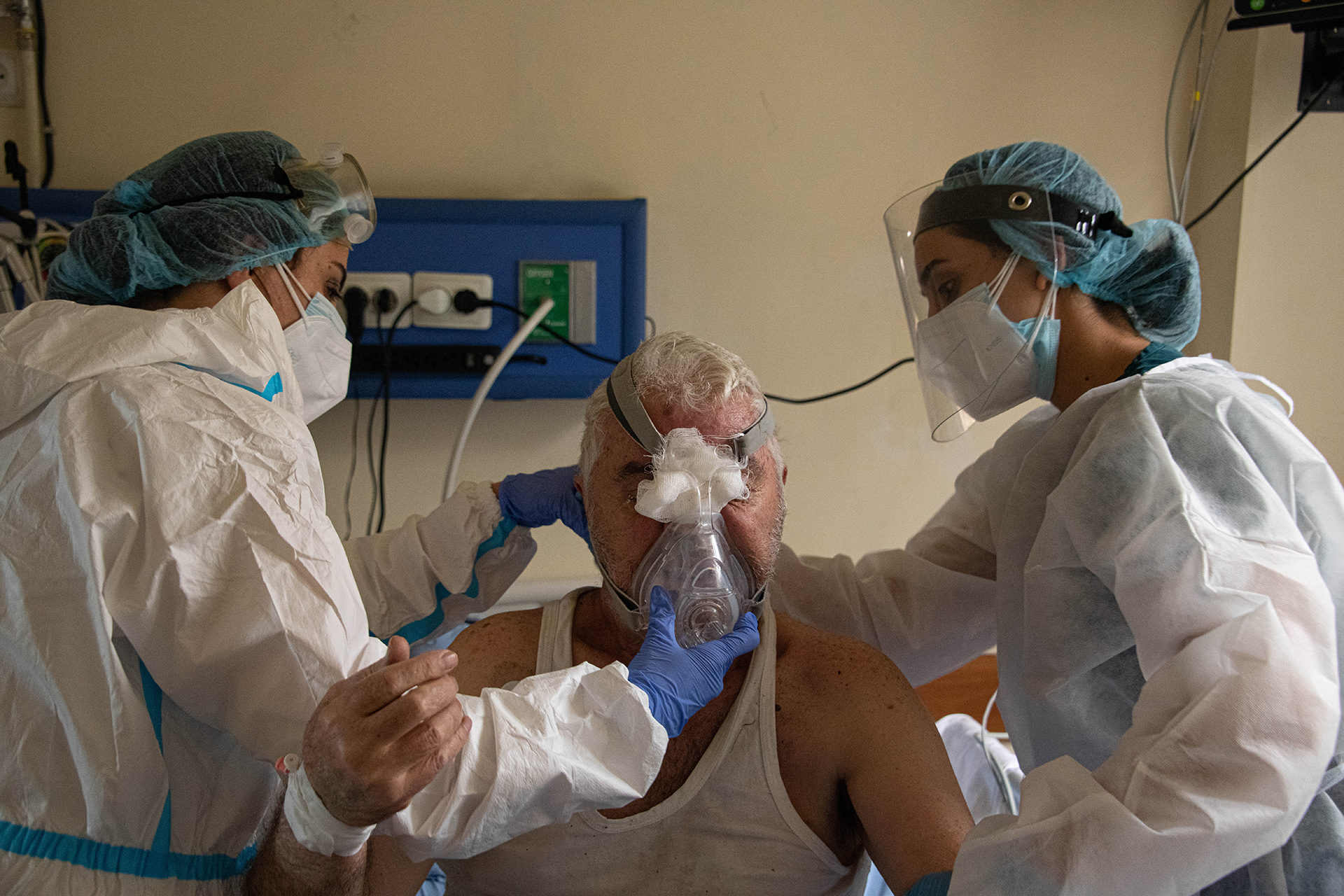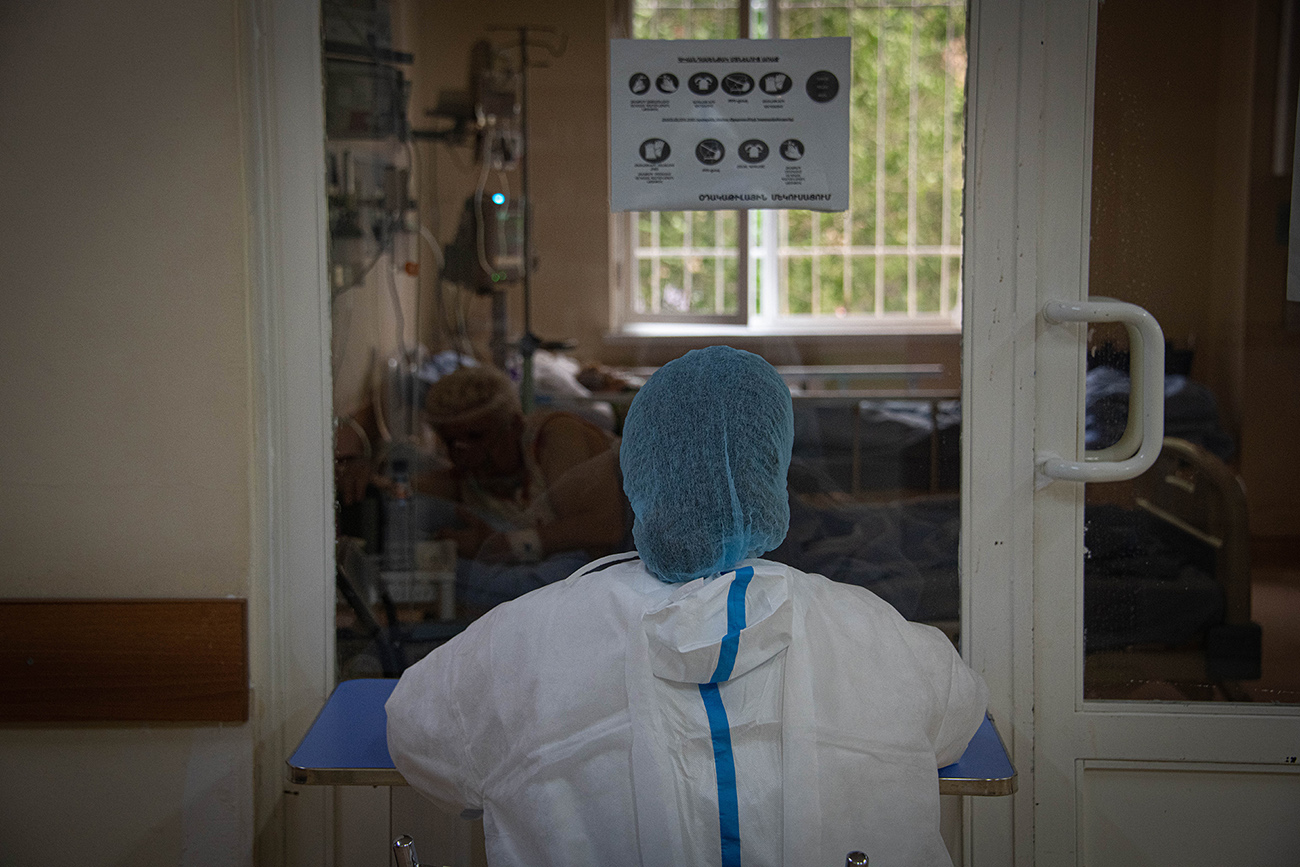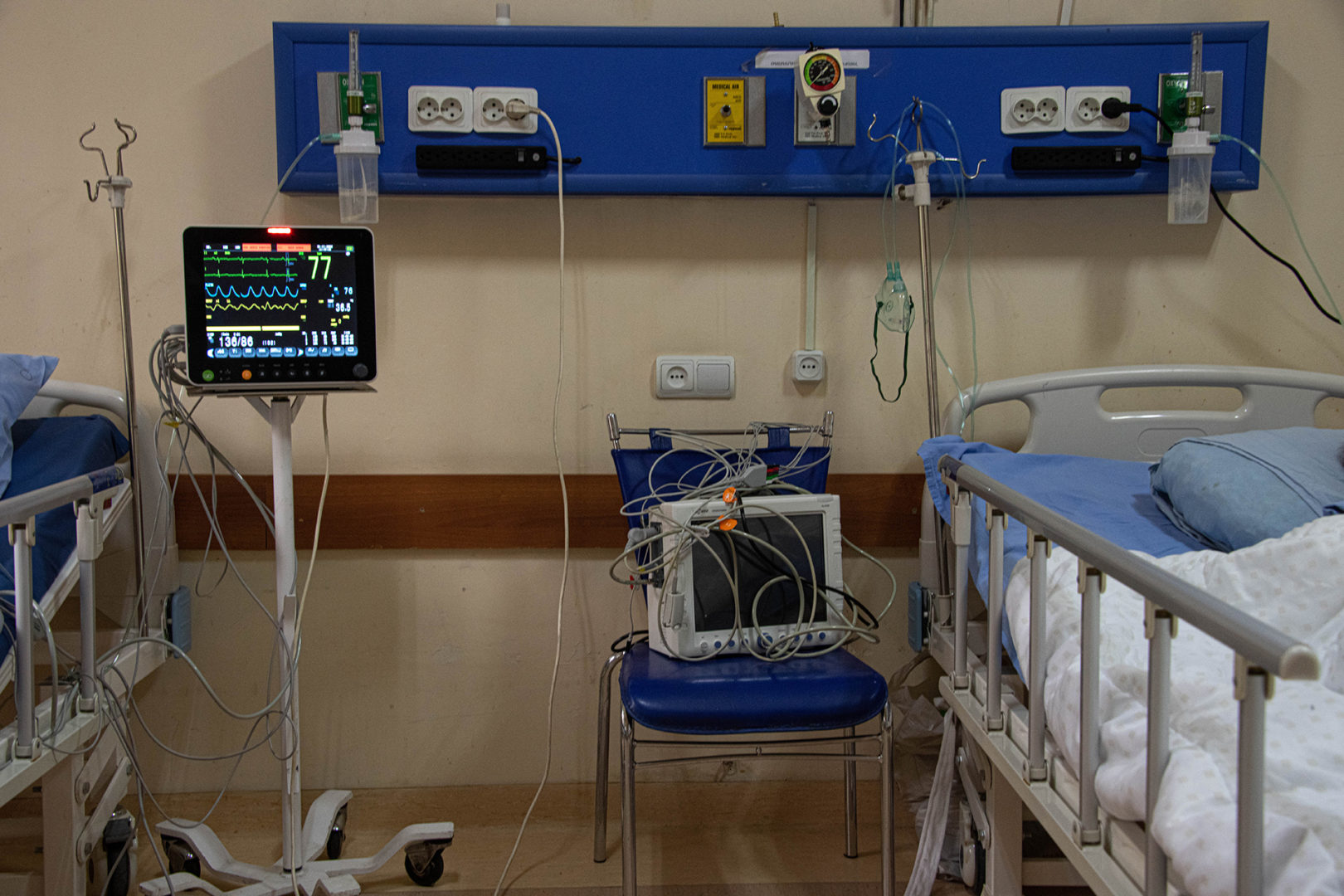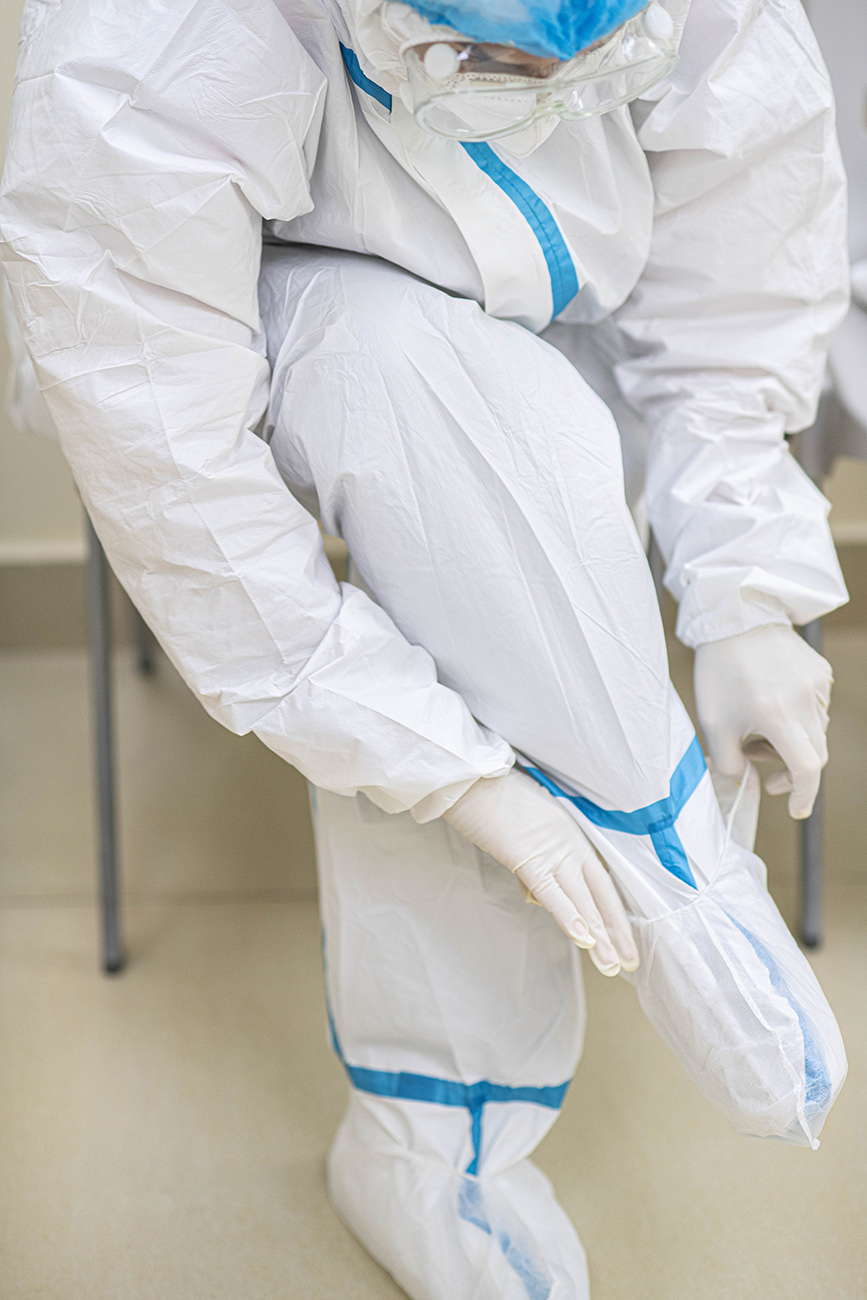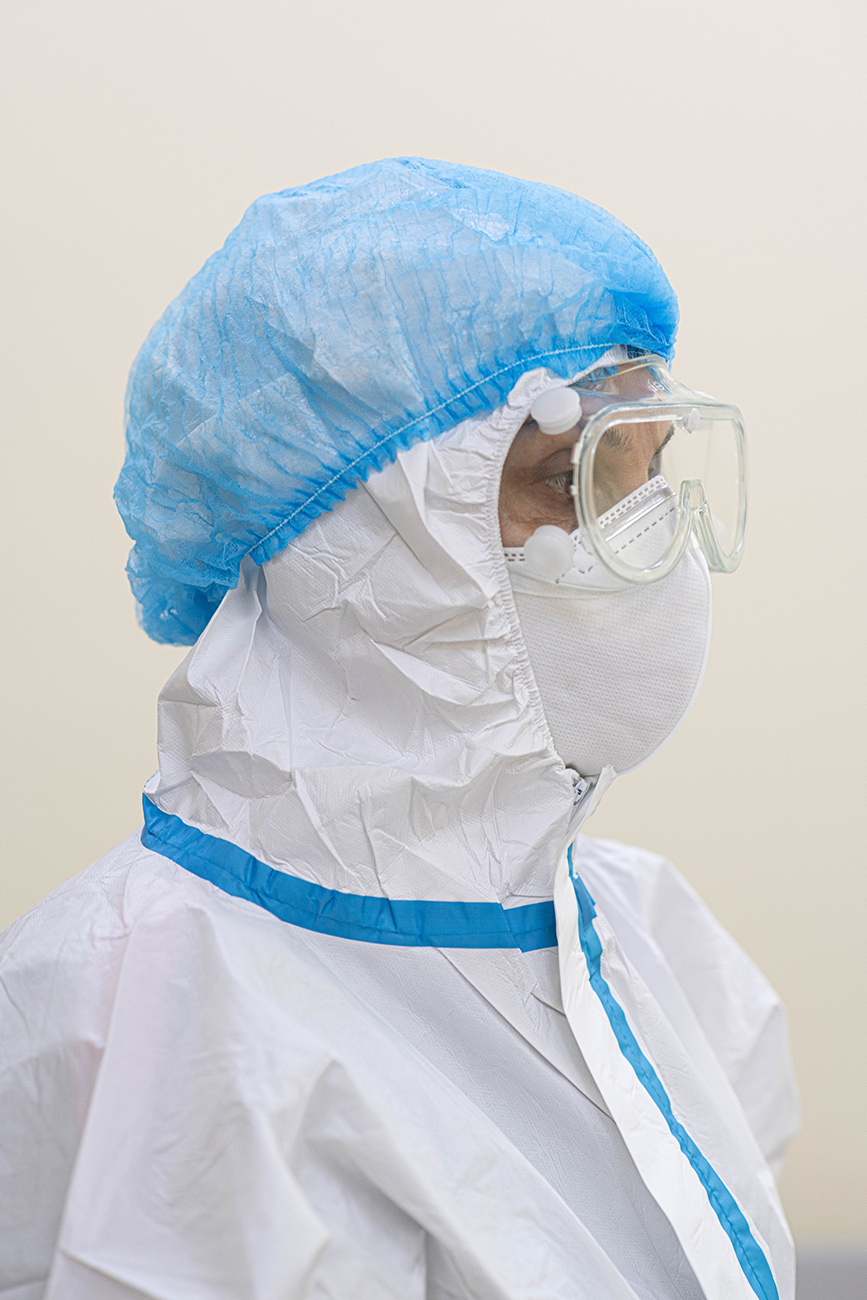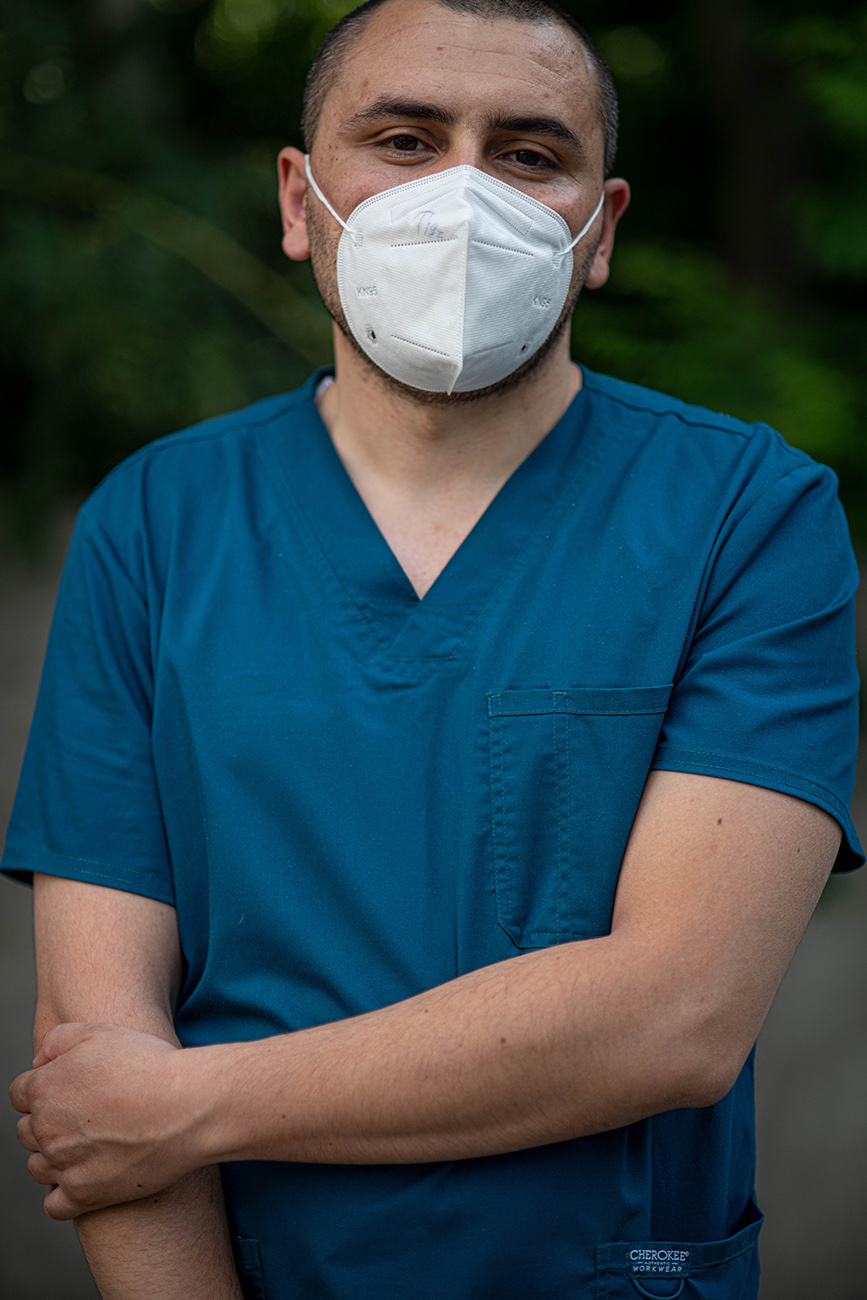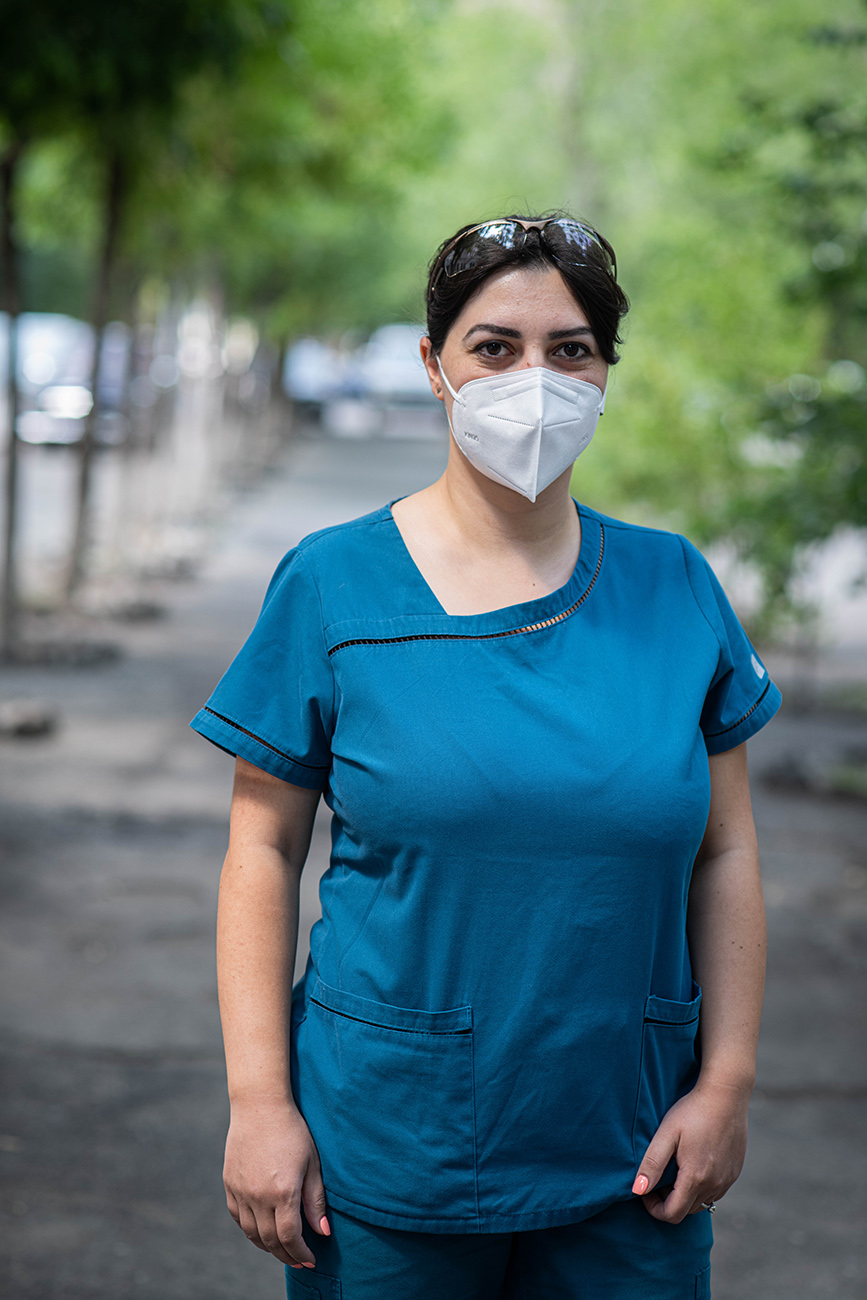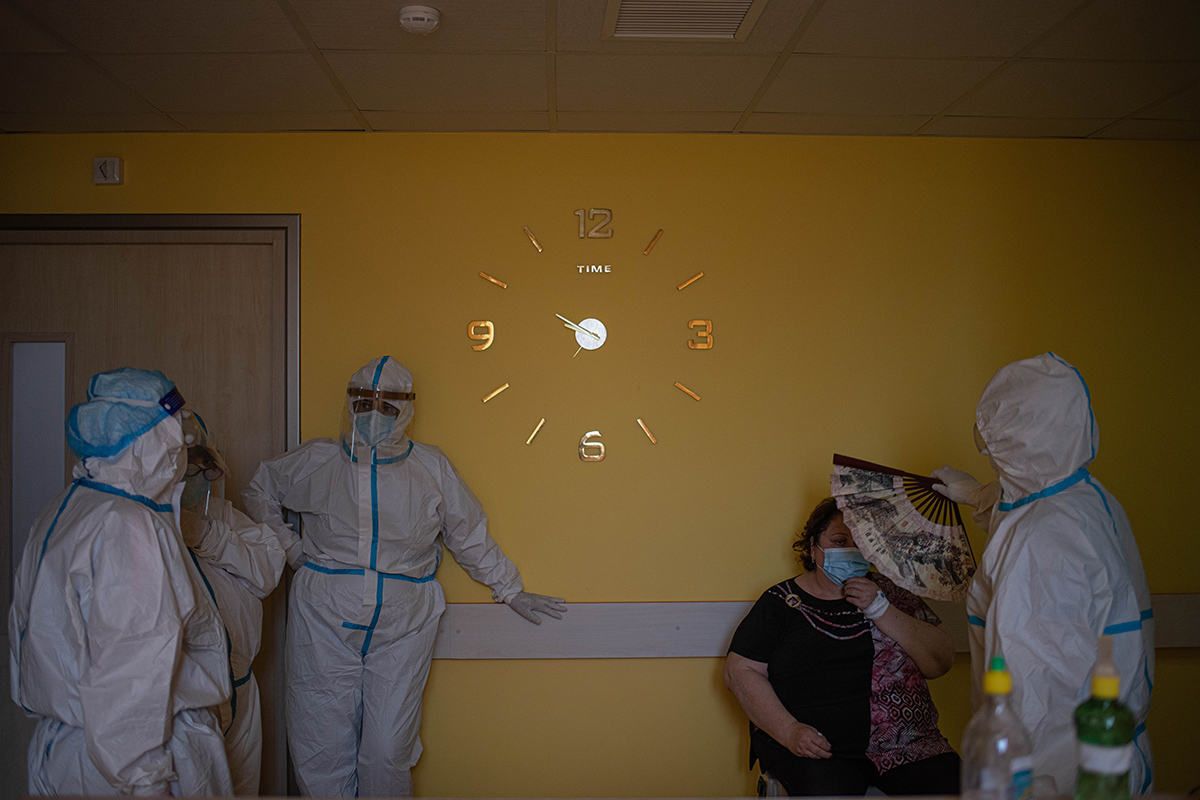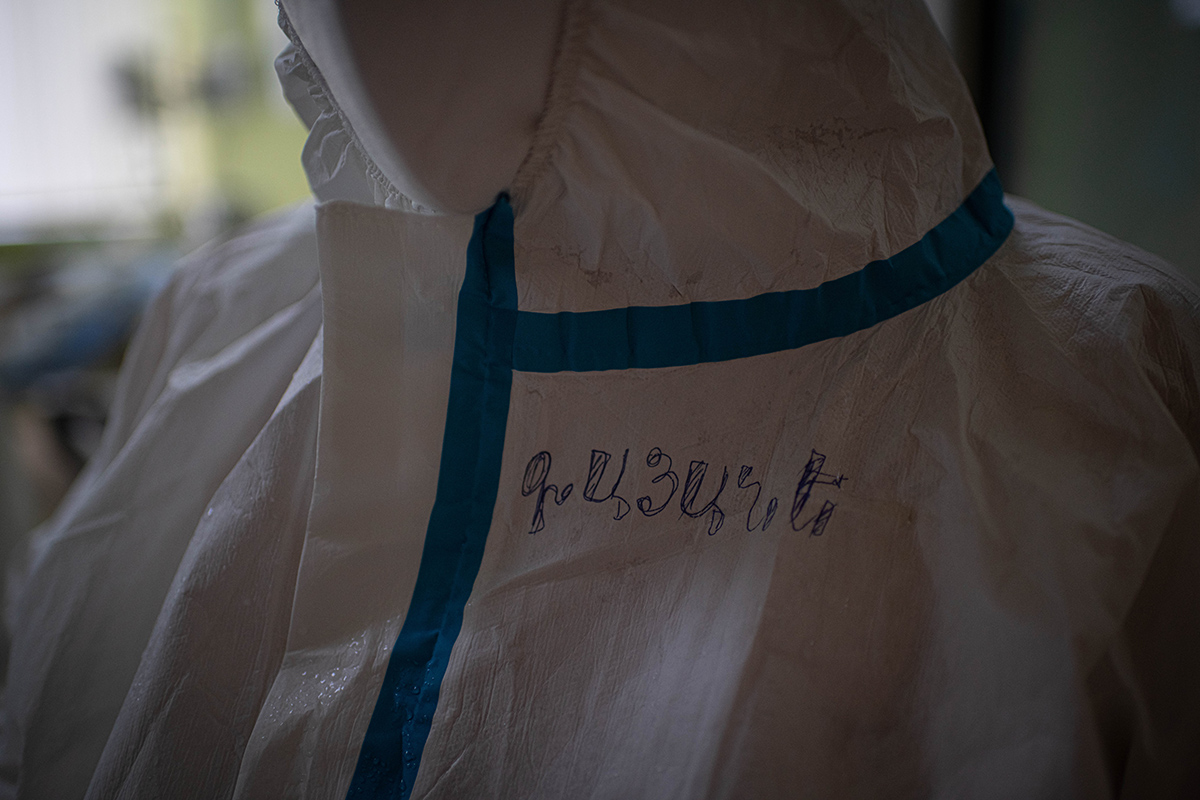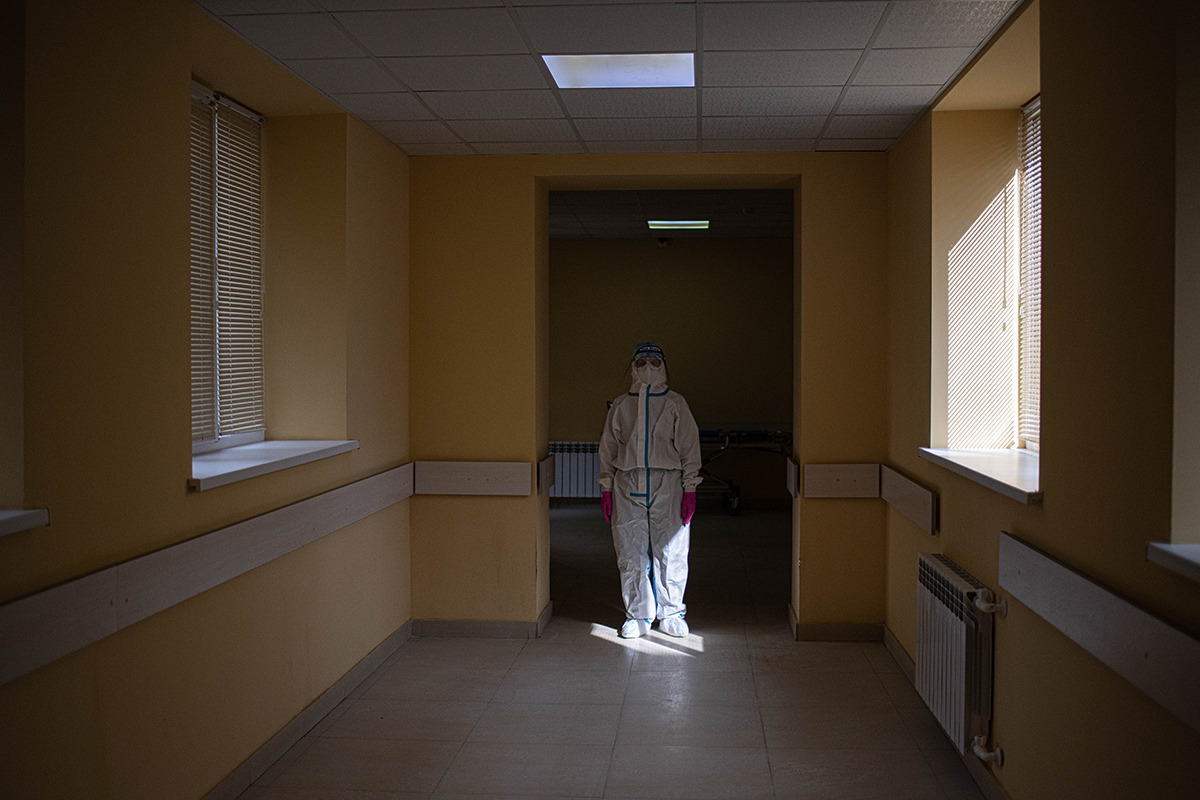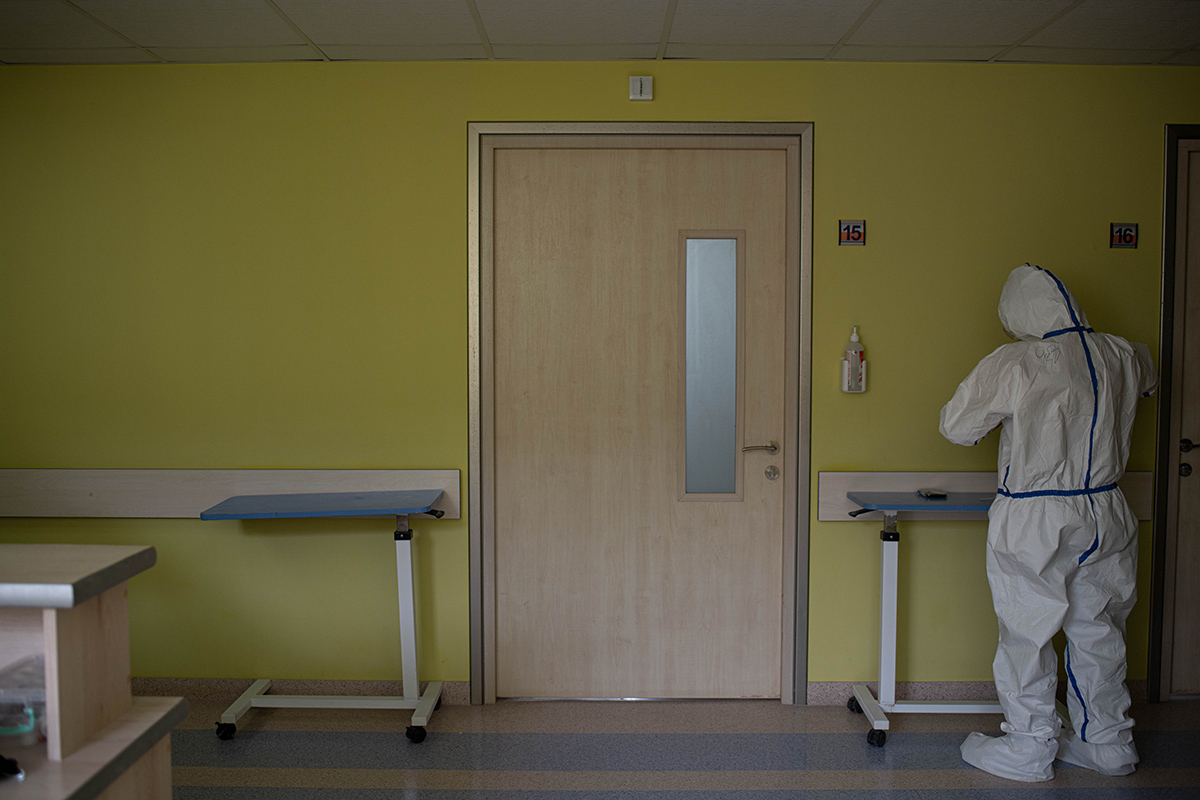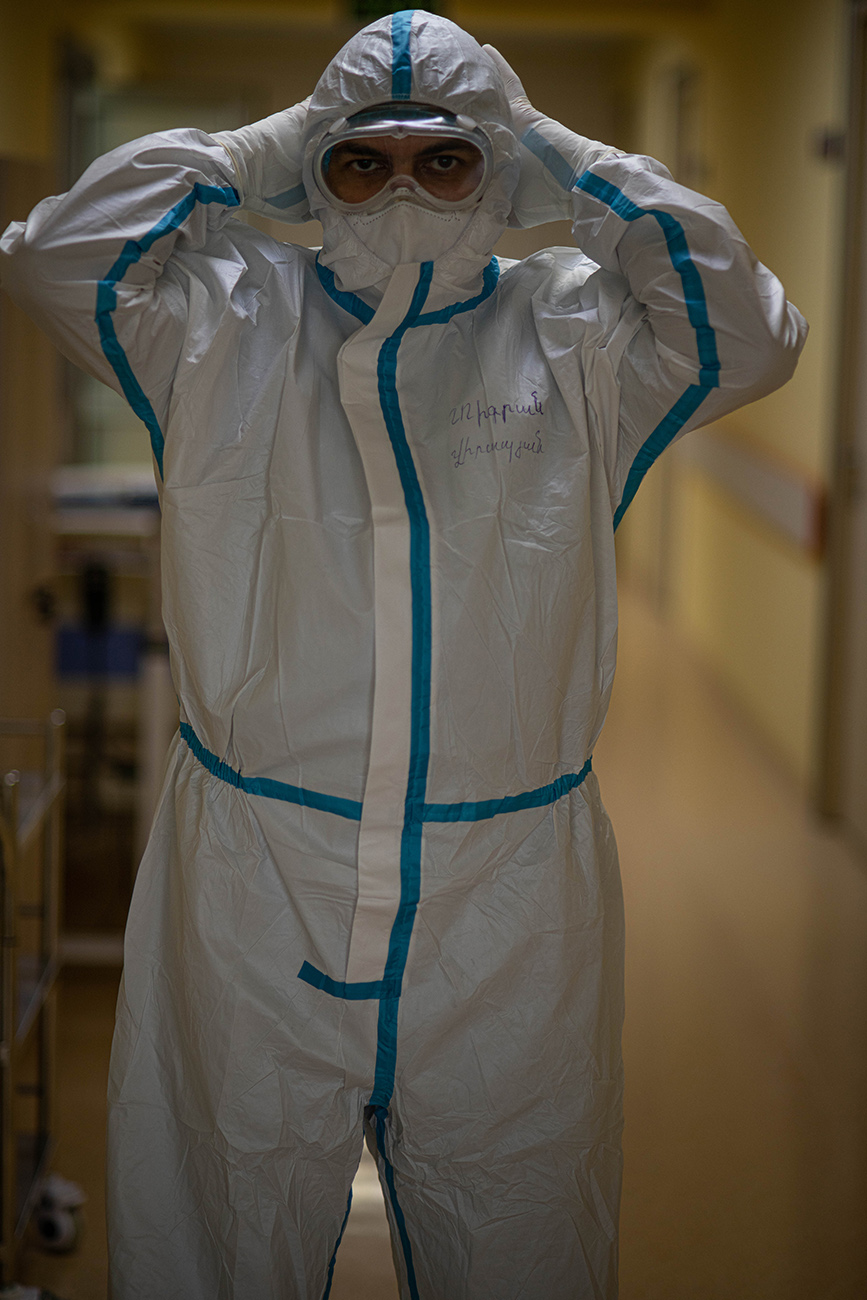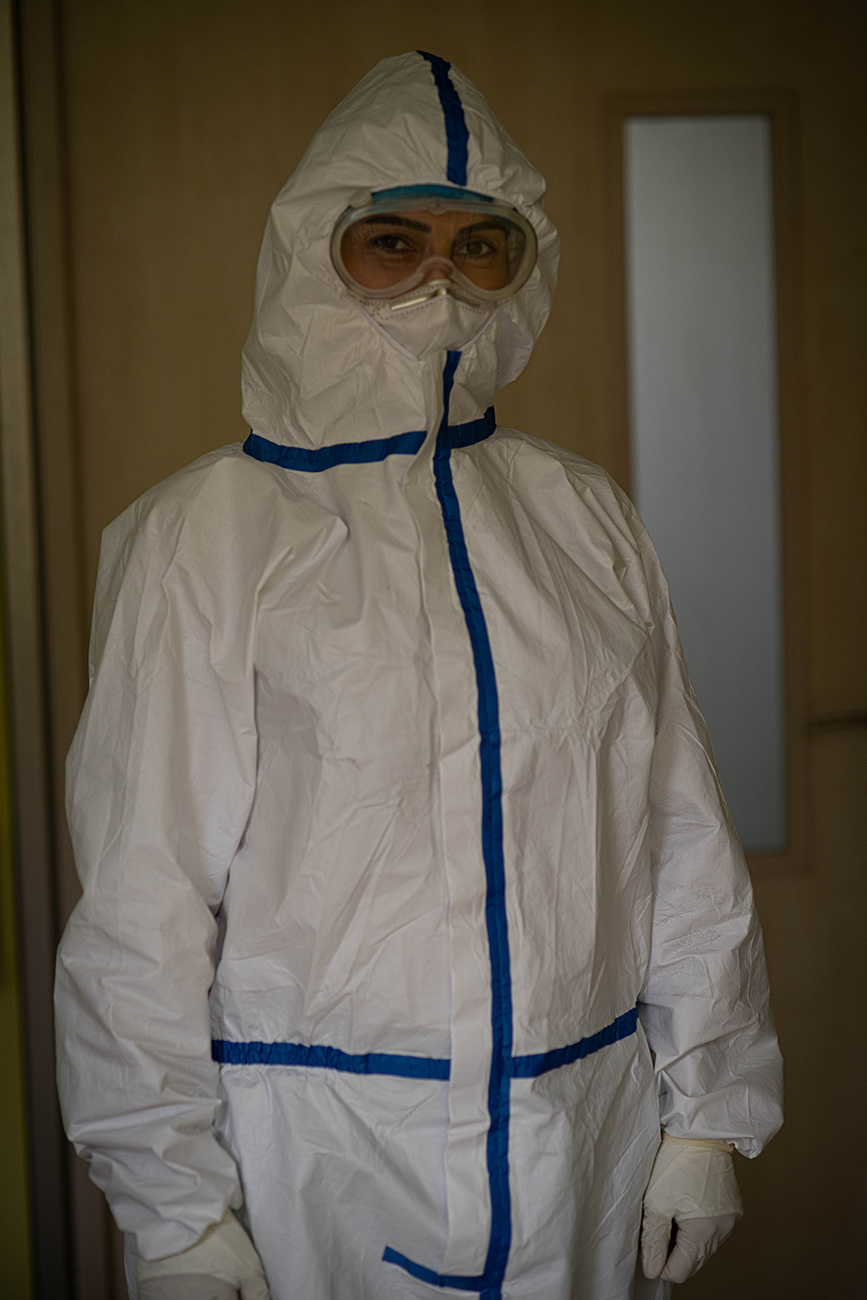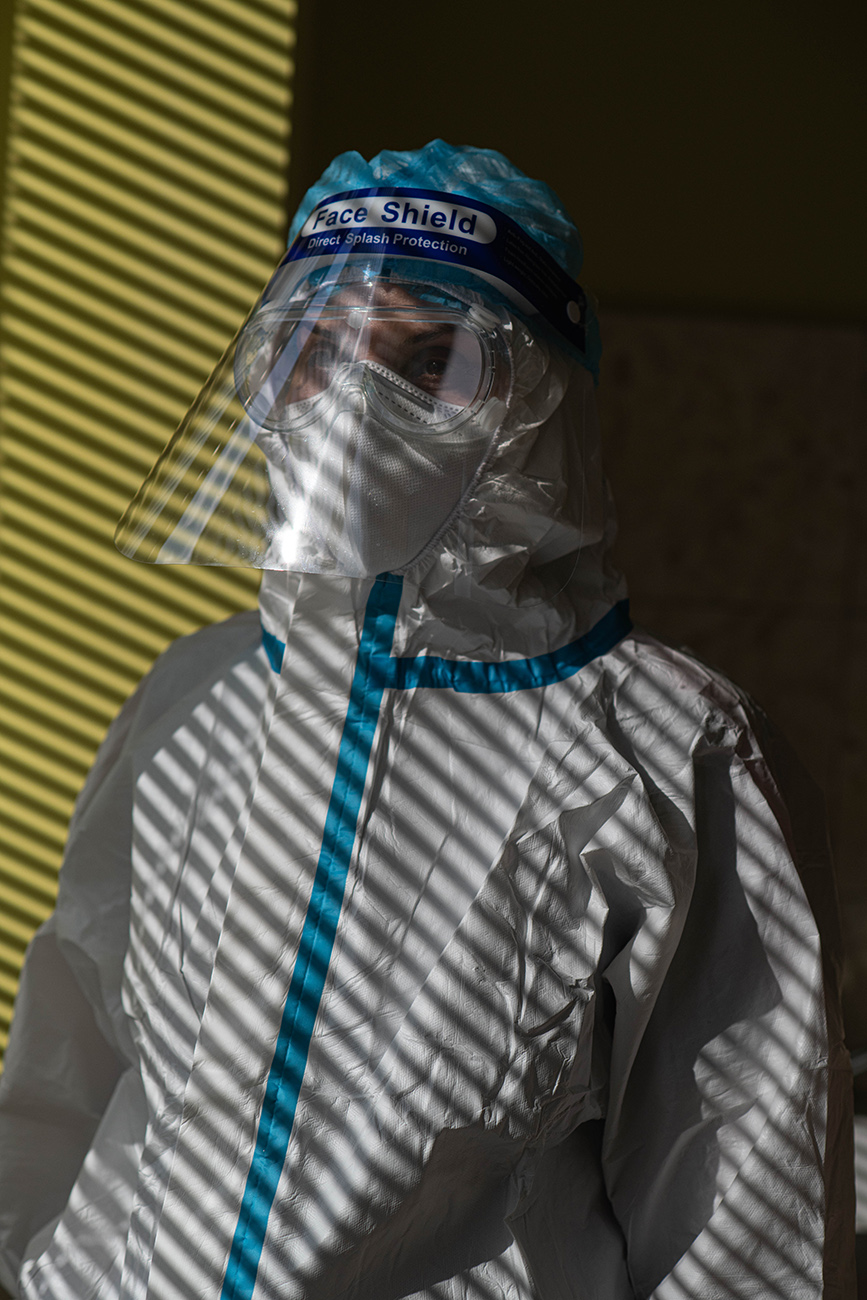At the end of March 2020, when Covid was like an impervious fog, and isolation was the only way to follow the outside world out of the window and the the latter being the only source of air to breathe consciously, it was hard to imagine that one day I will appear in the intensive care unit. To photograph.
The reality I imagined opens right at the entrance. White, cold, glazed.
There are doctors, nurses and sick-nurses in white uniforms in the corridors fighting the invisible war.
In front of me there is the resuscitation department, the “visible environment” of the epidemic with its decay and struggle. It is here that I, even in non-breathable medical clothing, for the first time feel the smell of the epidemic, the destructive air.
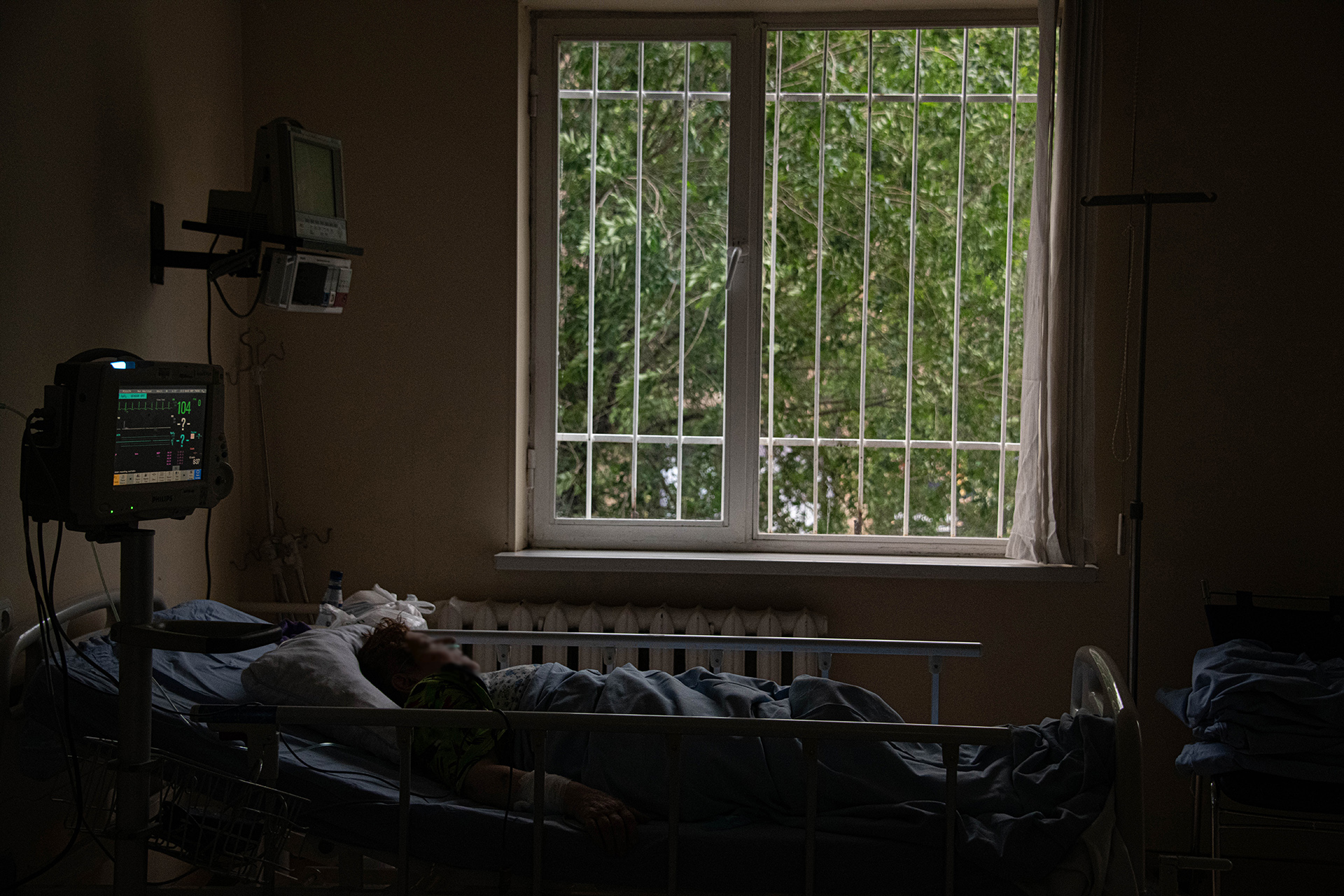
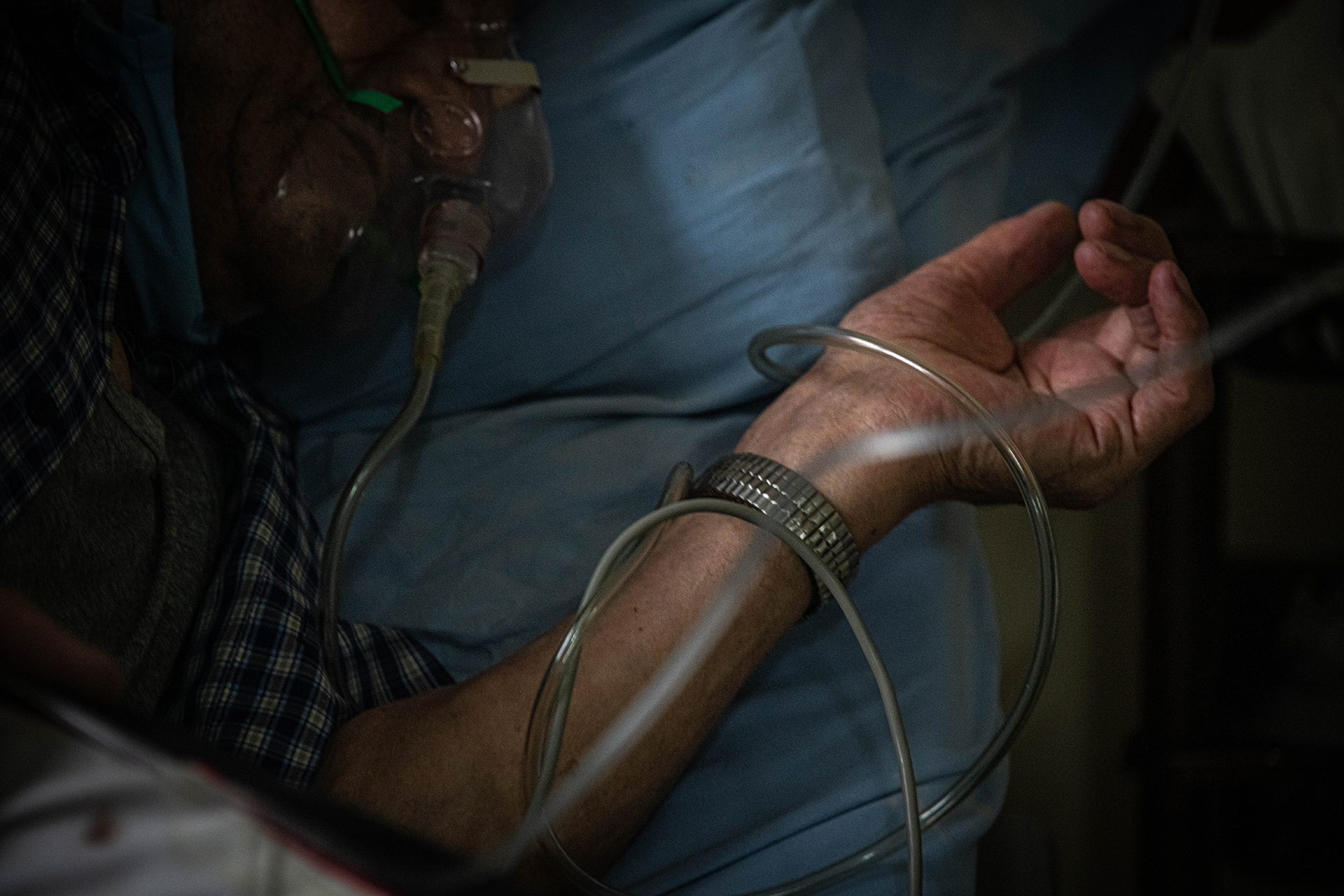
In the intensive care unit of “Saint Gregory the Illuminator” Medical Center.
In “resuscitation terrariums”, where invisible and dangerous Covid particles are everywhere, the self-defense guidelines in high-risk areas I have studied for days are shattered. I see the wards and the sweating bodies of people suffering on their beds through my camera’s lens. The sound of deep inhaling and exhaling coming out of the breathing machines spells the disastrous scope of the disease.
Trying to take pictures I constantly think about ignoring the existence of the epidemic, and the feelings of the last months – the moments when hatred and warmth, anger and comfort clashed.
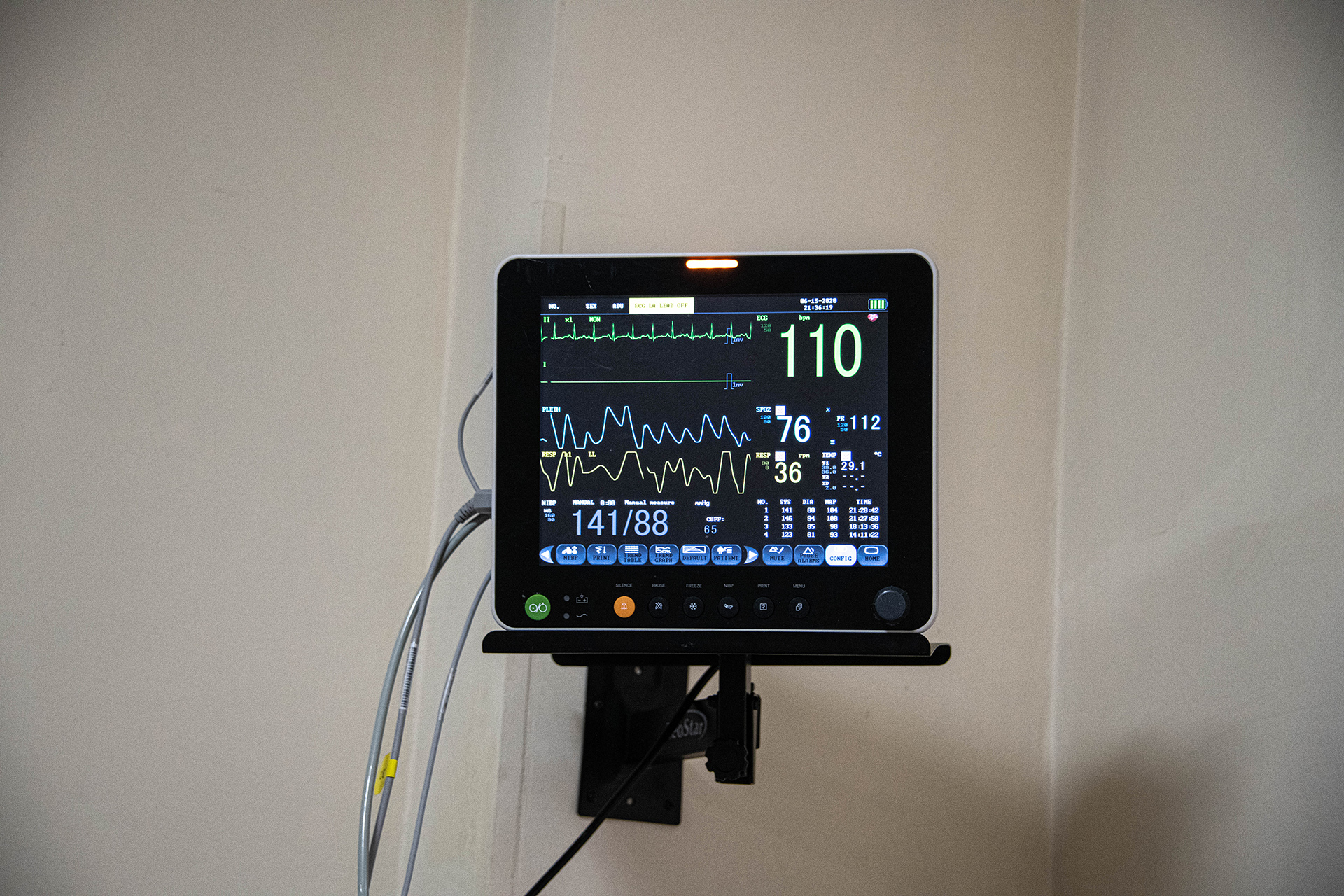
In the intensive care unit of “Saint Gregory the Illuminator” Medical Center.
Lecturer at Yerevan State Medical University after Mkhitar Heratsi, Associate Professor at the Department of Anesthesiology and Intensive Care
Since April 1, she has been working at Artashat Medical Center as the head of Covid-19 clinics.
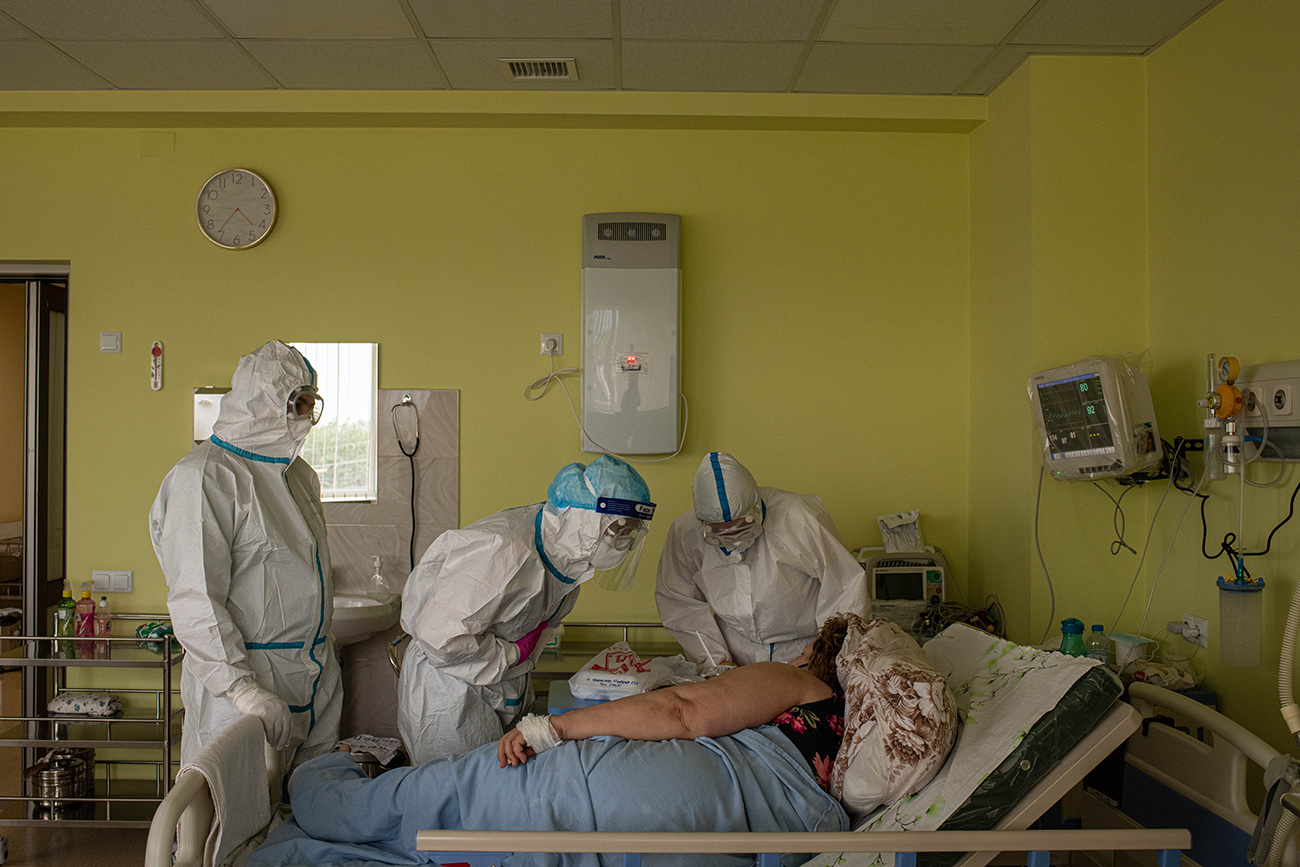
In the resuscitation department of Artashat Medical Center.
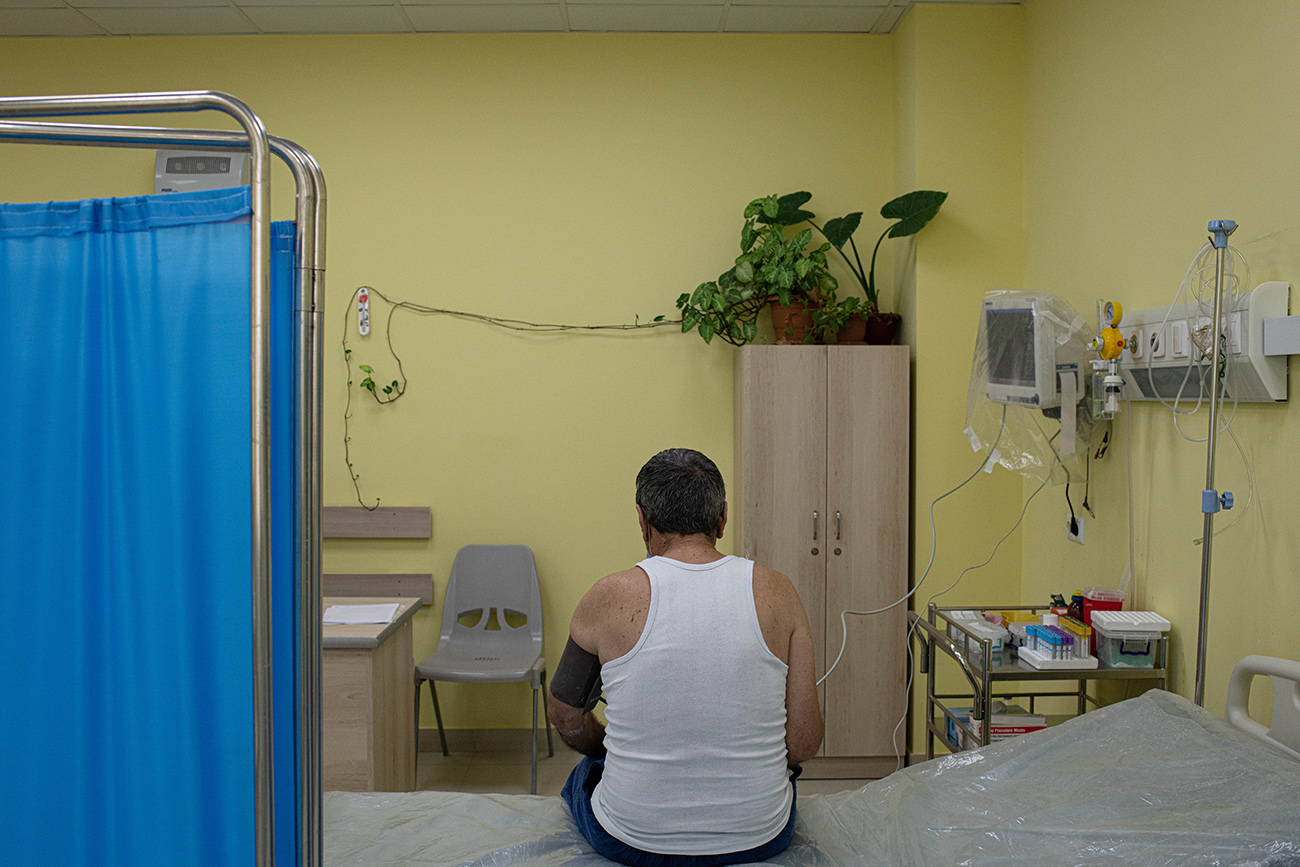
In the reception of Artashat Medical Center.
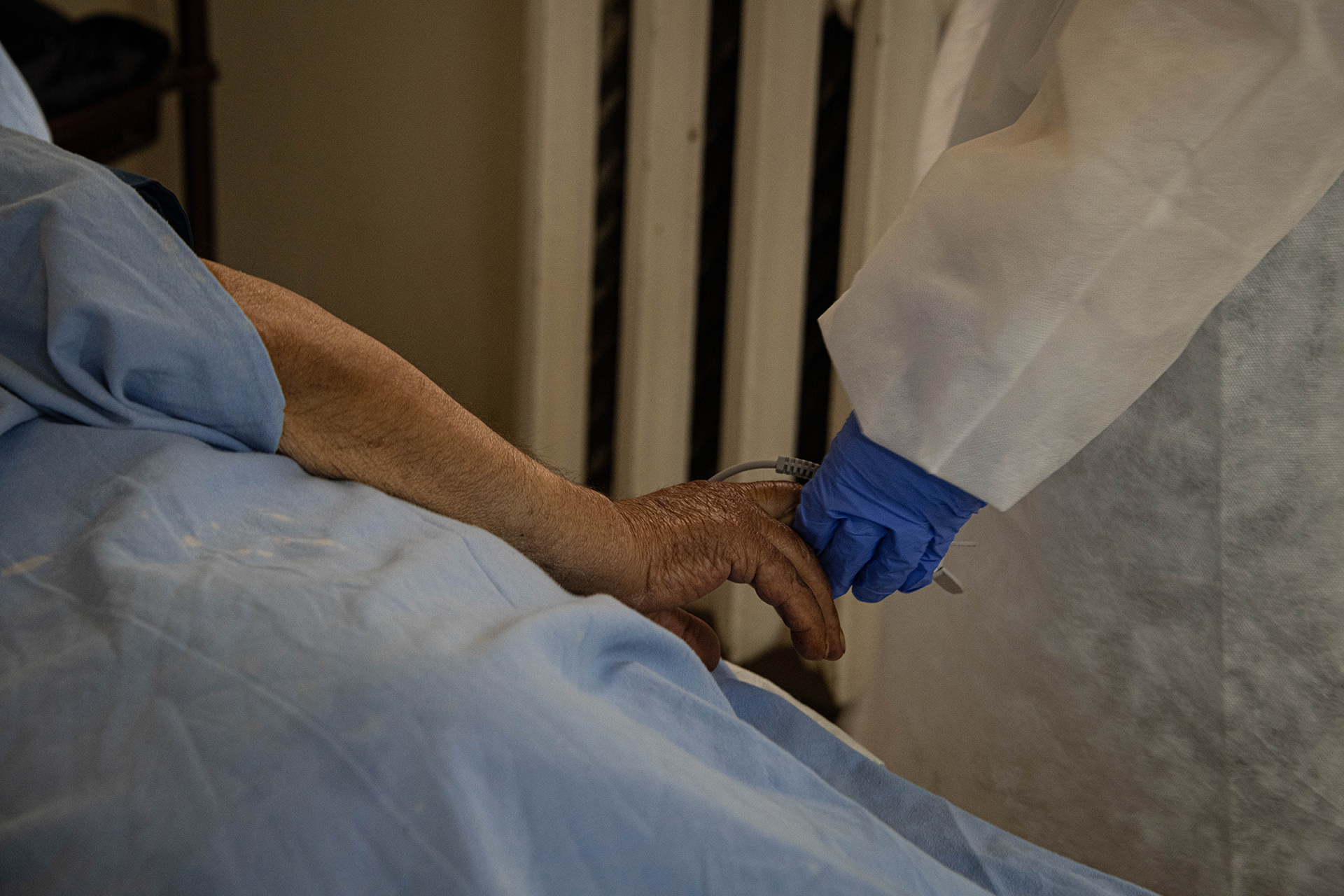
In the intensive care unit of “Saint Gregory the Illuminator” Medical Center.
Since April 5, he has been working in the resuscitation department of “Saint Gregory the Illuminator” Medical Center.
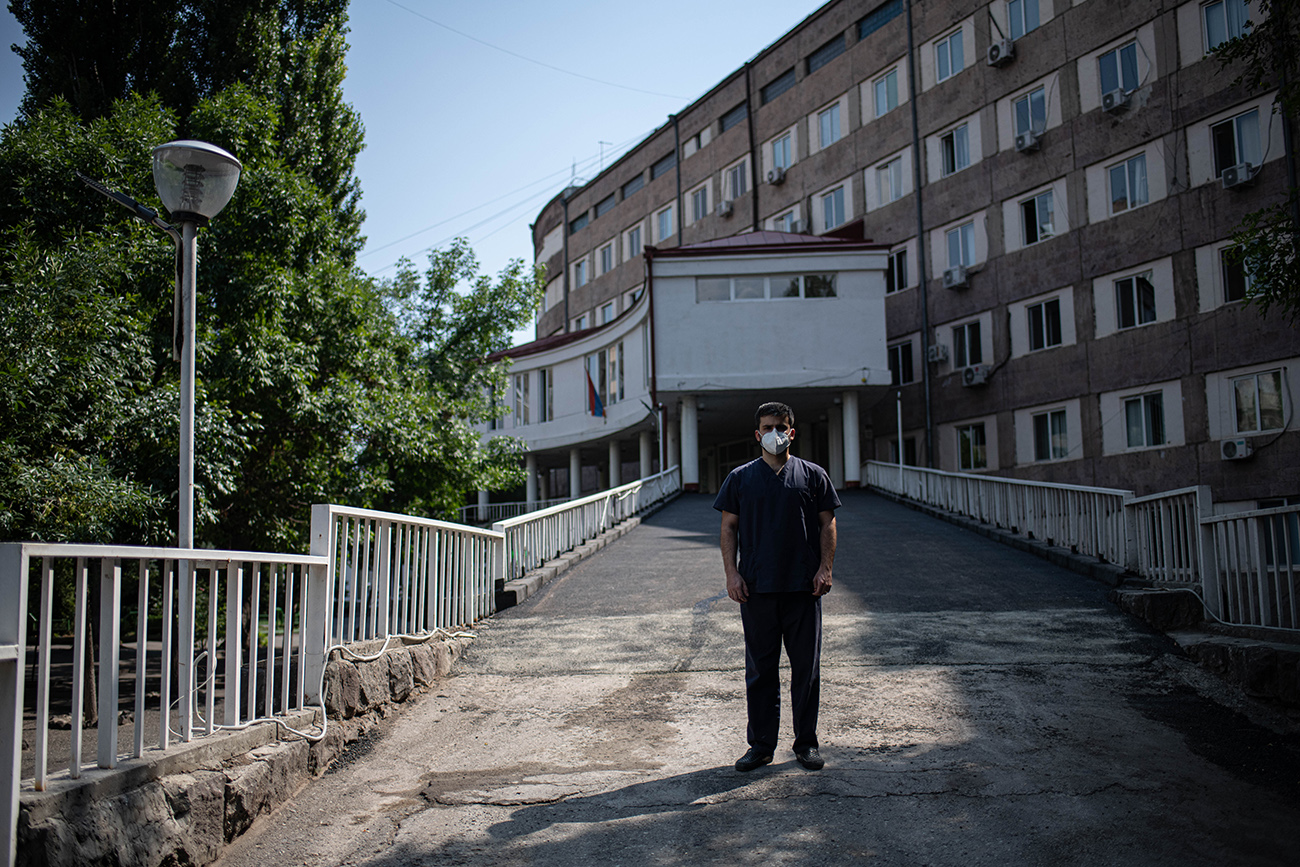
I got infected. I felt weak after the evening shift, I guess I contracted from the medical staff. I didn’t suffer because of the disease that much: there was no pneumonia, but I had the rest of the symptoms – expressed general weakness, excruciating muscle pain that lasted for two or three days, that’s all. I went to work immediately after treatment.
We have patients with severe respiratory failure and accompanying chronic problems, and it is definitely a great experience to work with them. There are patients who do not believe in it, there are those who died not believing. When they were already in a bad condition, of course, we would not ask, huh, do you believe in it now?..
Ernest Sargsyan, 28, Clinical Ordinator at the Department of Anesthesiology and Resuscitation
Since April 5, he has been working in the resuscitation department of “Saint Gregory the Illuminator” Medical Center.
When all this is over, we will return to our daily routine, having acquired certain skills, being a little smarter and having revalued certain values. Because not seeing each other and postponing meetings in the past due kind of “lack of time” will probably not happen anymore. Hugs, warm, intimate meetings, it seems to me that we all feel the lack of that warmth…
Since April 5, she has been working in the resuscitation department of “Saint Gregory the Illuminator” Medical Center.
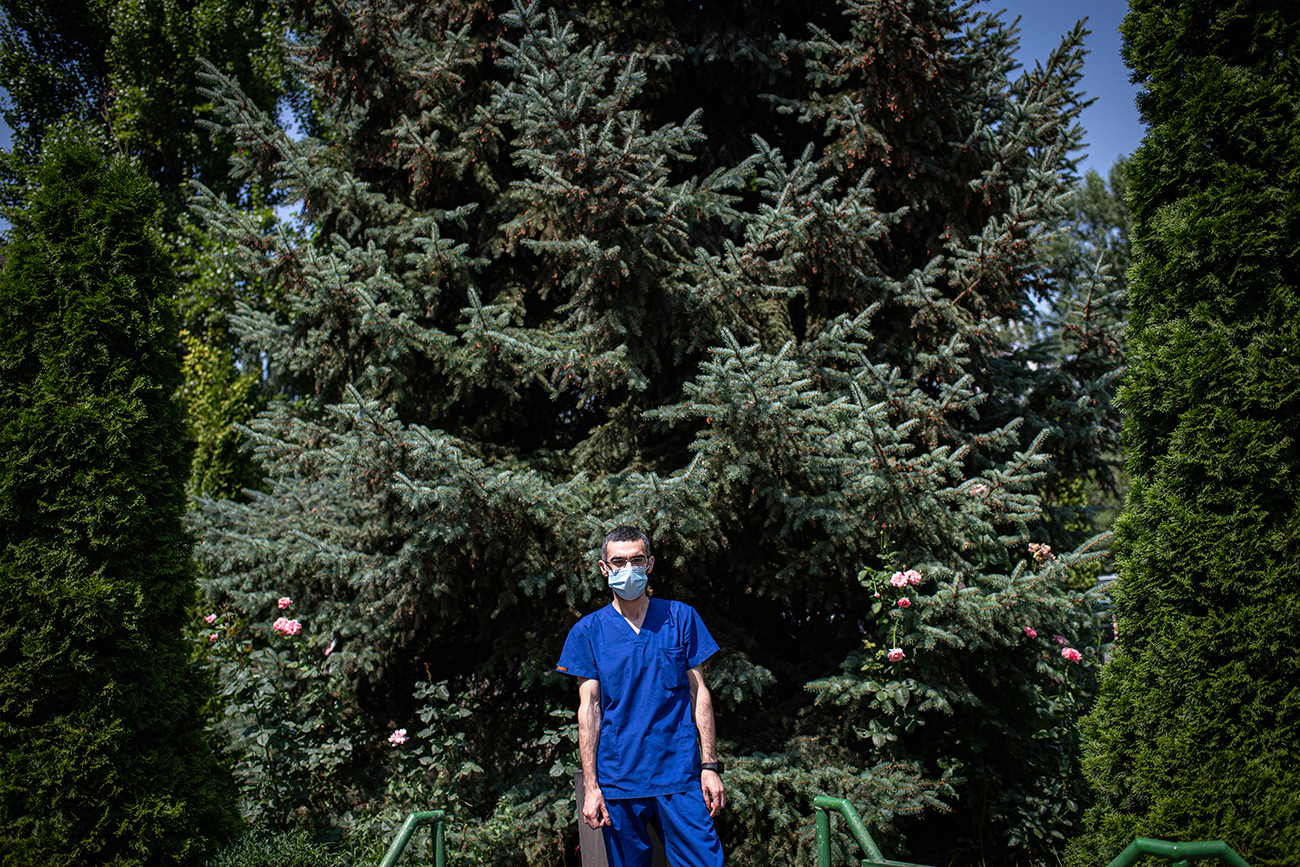
The best dream of mine that can be… when you are mustered out from the army you are happy, aren’t you? Now I only dream this to come to an end so I can go to my surgery, see, that is my dream.
And when all this is over, I will get married…
Andranik Jaburyan, 37, general surgery medical olderly
Since March 6, he has been working at the reception of “Saint Gregory the Illuminator” Medical Center
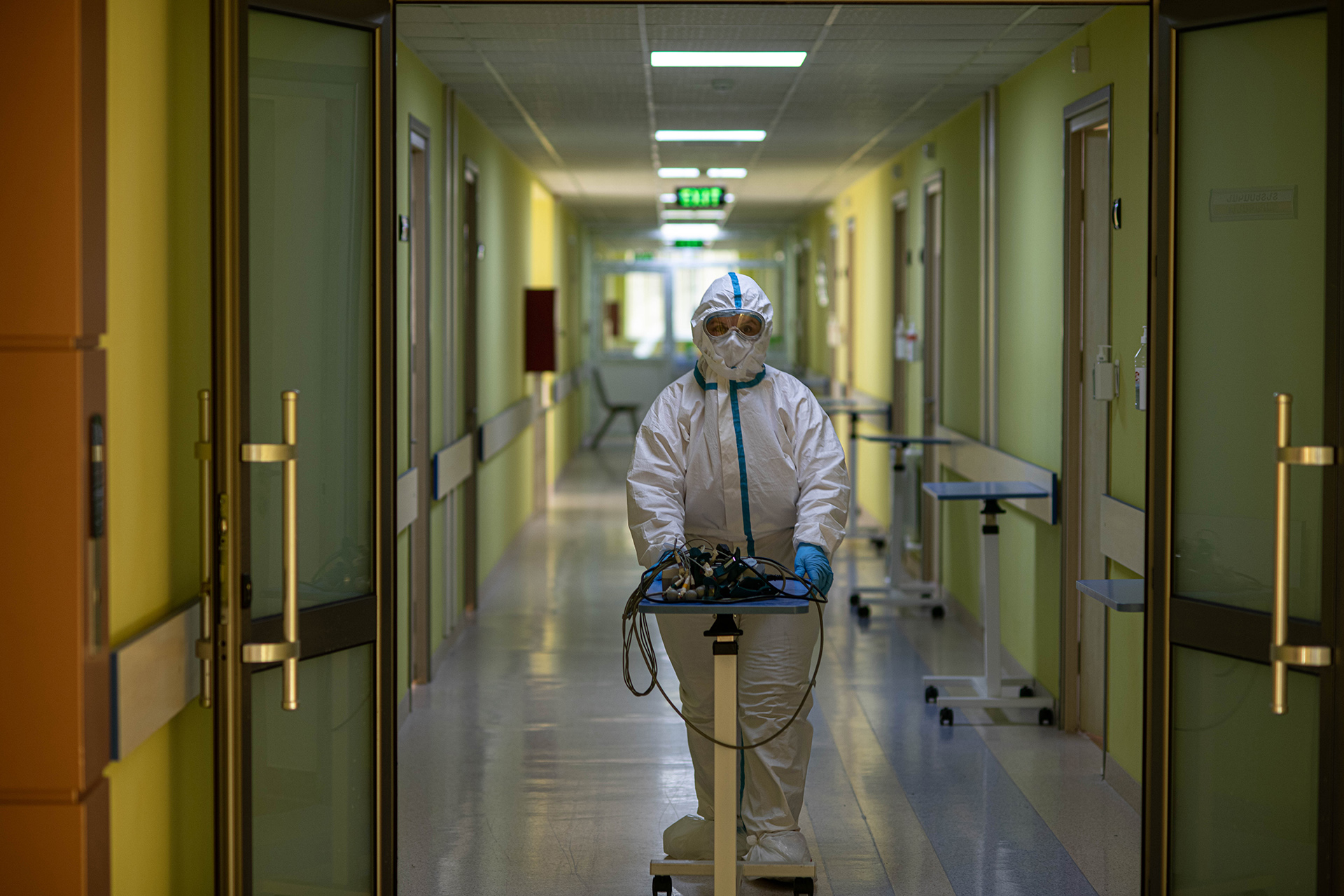
It was difficult at the beginning. I have small children, I am a single mother. My parents said – you have to go and work, people need you, everyone needs you, we will take care of your children. Now I work for fifteen days, isolate for fourteen days, and then spend ten days with my children and parents. Every time before getting my Covid test result, my family members are afraid…
People are afraid and ashamed. They mostly think that people should not know that they are infected. Do you know what I told them? I said people, why are you ashamed? This is not the disease you should be ashamed of. It is global, of course, excuse my expression, it isn’t a venereal disease, you have to tell about it from the very beginning … Many people hide it and come only when they already have serious respiratory problems.
I miss our quiet work, honestly, I’d like everything to be open, I’d like to heartily enter the ward, not to put on gloves and masks, I miss my usual work and my family.
Serine Nikoghosyan, 39, manipulative nurse of the therapeutic department
Since April 1, she has been working as a nurse on duty in the Infectious Diseases Department of Artashat Medical Center.
Statistics
In the infection diseases departments of Artashat Medical Center.
I do not see the end of the epidemic. We definitely have progress, the hospitals are well-equipped, the medical staff has gained enormous experience, and we are ready…
She has been working at Artashat Medical Center since April 1.
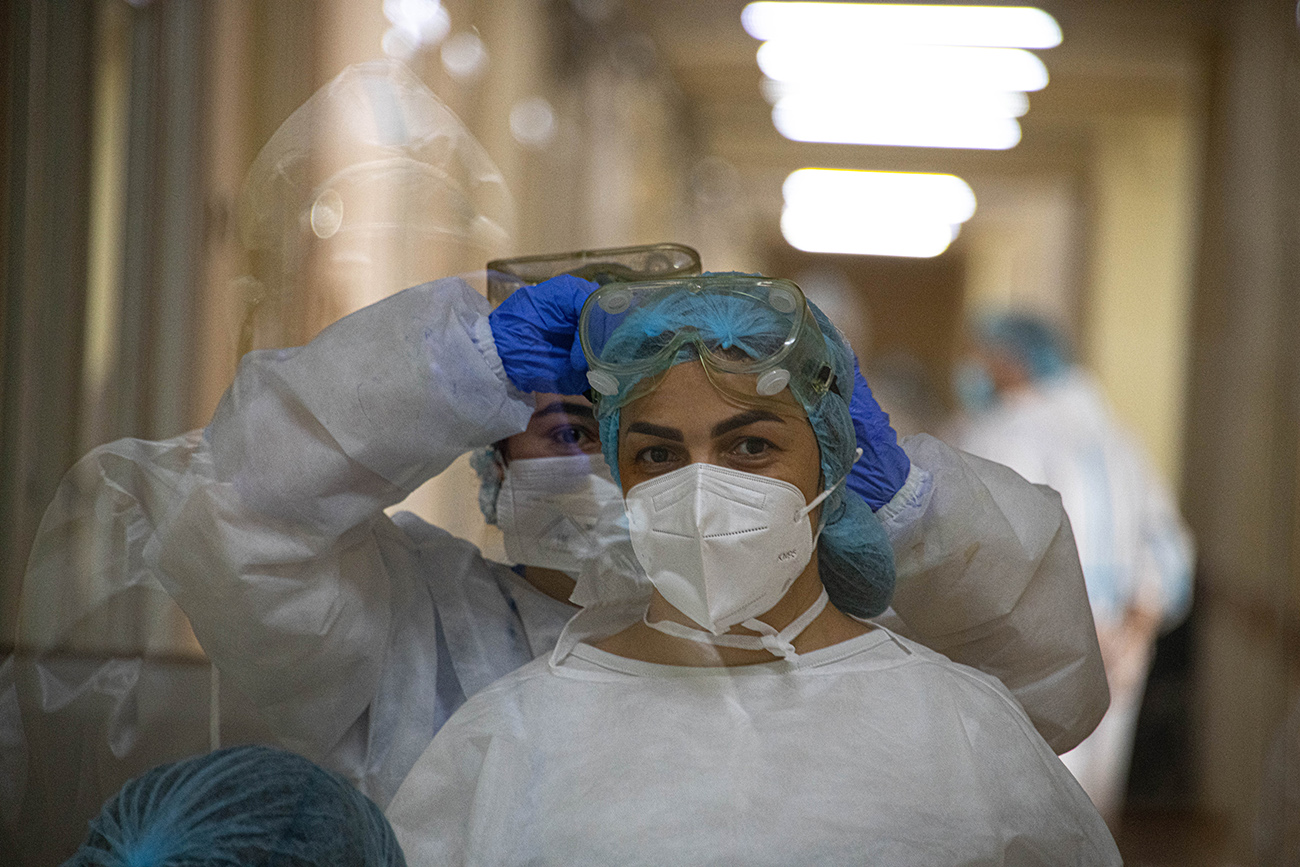
In the intensive care unit of “Saint Gregory the Illuminator” Medical Center.
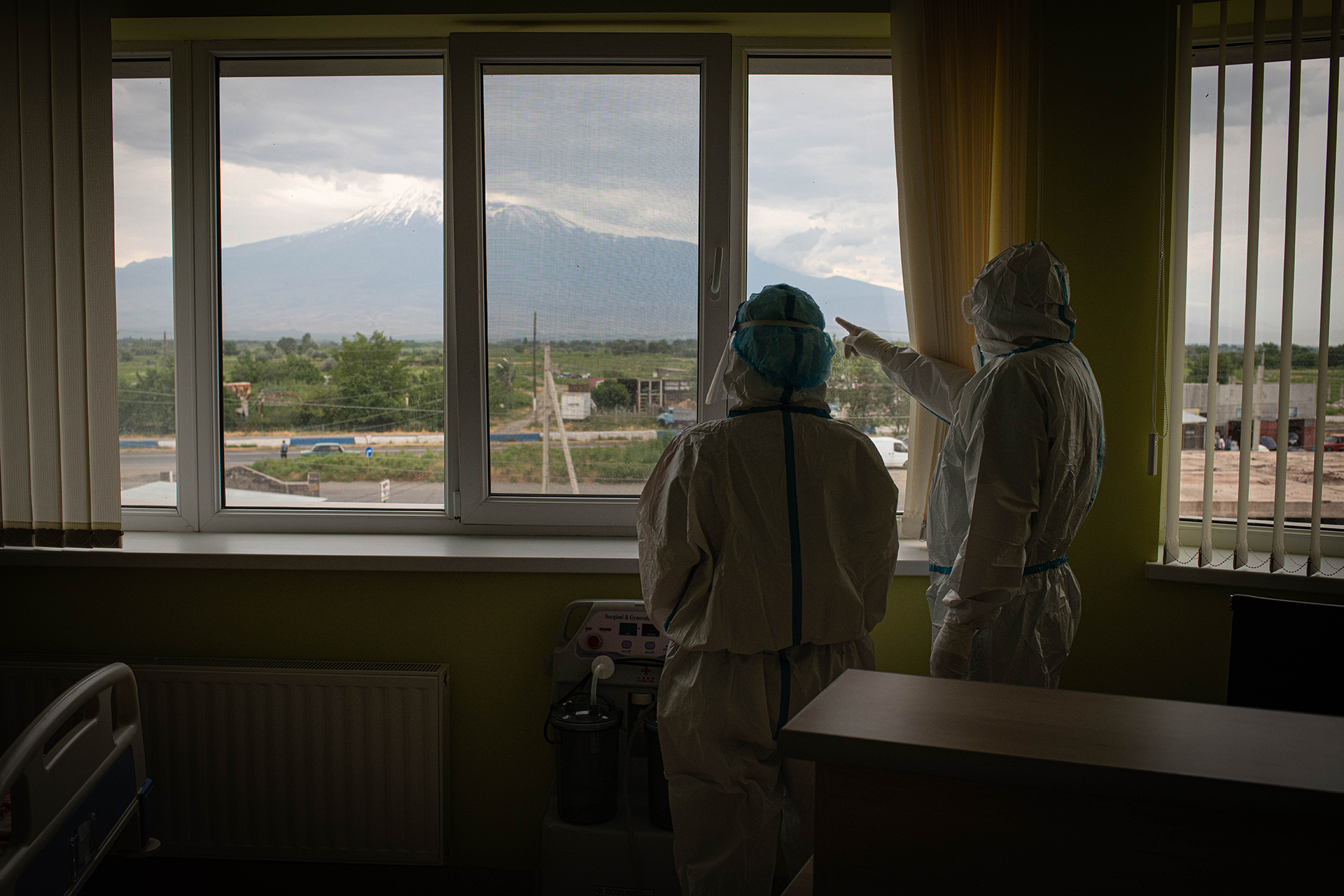
In the resuscitation department of Artashat Medical Center.
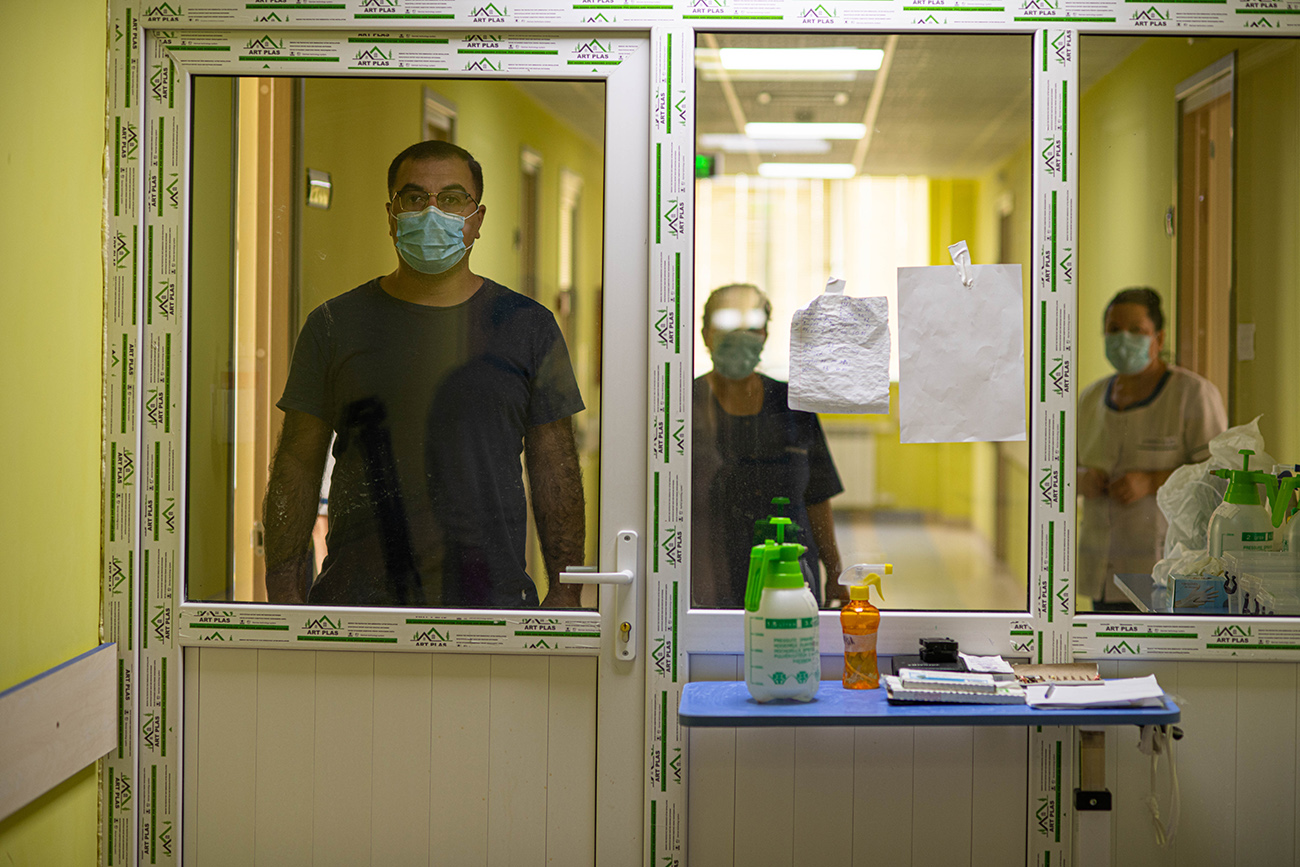
I haven’t been infected. No one wants to be infected. To be afraid? It does not make sense, you just have to be careful and do your best not to get infected.
Of course, the epidemiological regime is properly maintained in our hospital, the anti-epidemic conditions are quite good here, the problem is well organized, which is of great importance: the outfit, the contact with the patient, the time we use optimally to communicate with the patient and in treatment.
Arshak Shahverdyan, 27, general surgeon
Since April 1, he has been re-profiled as an infectious disease specialist at Artashat Medical Center.
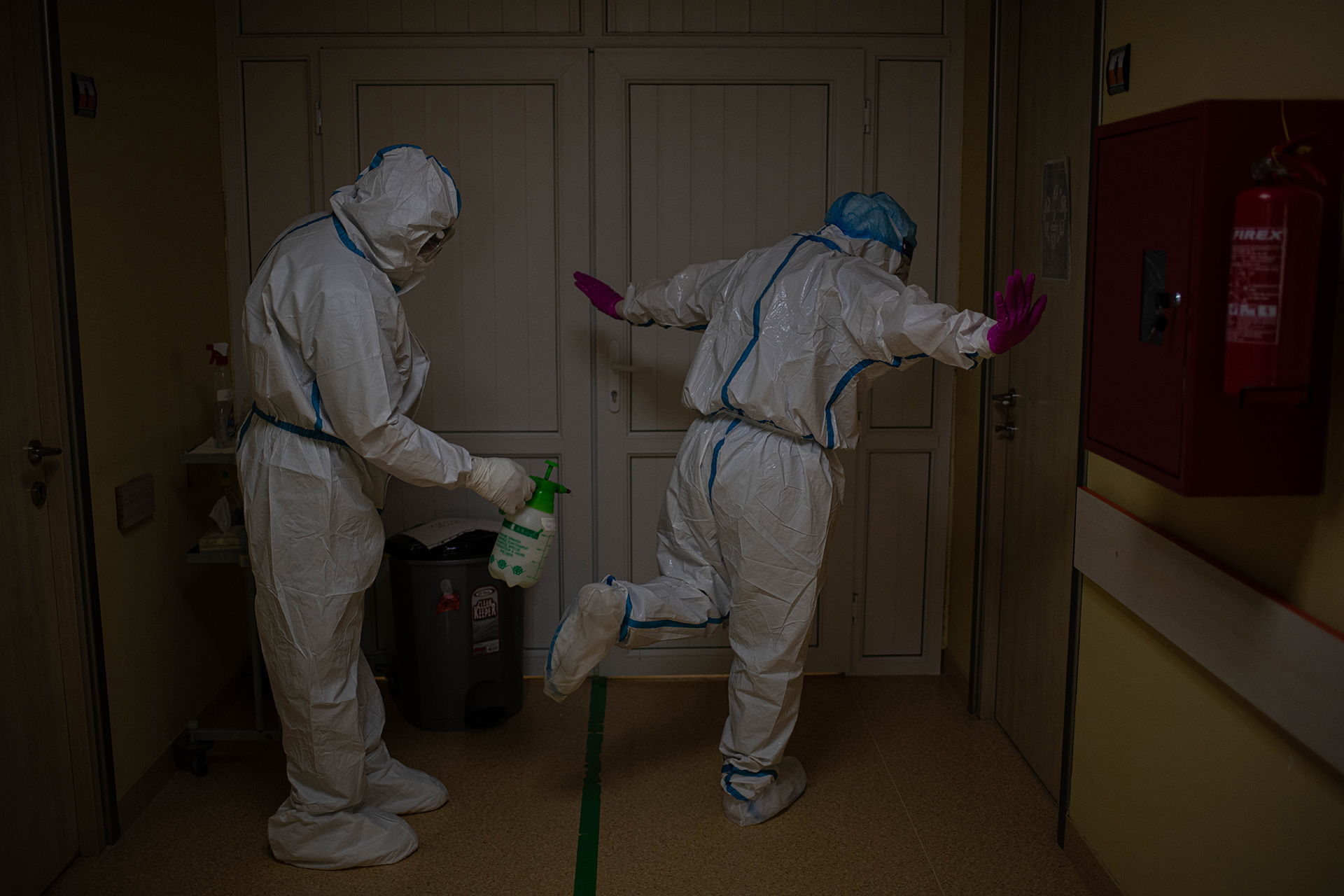
In the resuscitation department of Artashat Medical Center.
Our job is not only to cure, our job is also psychological help. We work on several fronts. The family warmth that the patient needs for recovery, he receives from us, medics.
Doctors in re-profiled infectious disease hospitals often talk to each other on many topics, although we don’t know each other by face, it’s not even possible to know everyone. But when we call each other, we immediately get a warm, kind response, supportive and helpful attitude. There is only mutual help now. Did we need this? Of course we did! Will this form of communication be maintained in the future? I’m sure it will, because there is no other option.
Lecturer at Yerevan State Medical University after Mkhitar Heratsi, Associate Professor at the Department of Anesthesiology and Intensive Care
Since April 1 she has been working at Artashat Medical Center as the head of Covid-19 clinics.
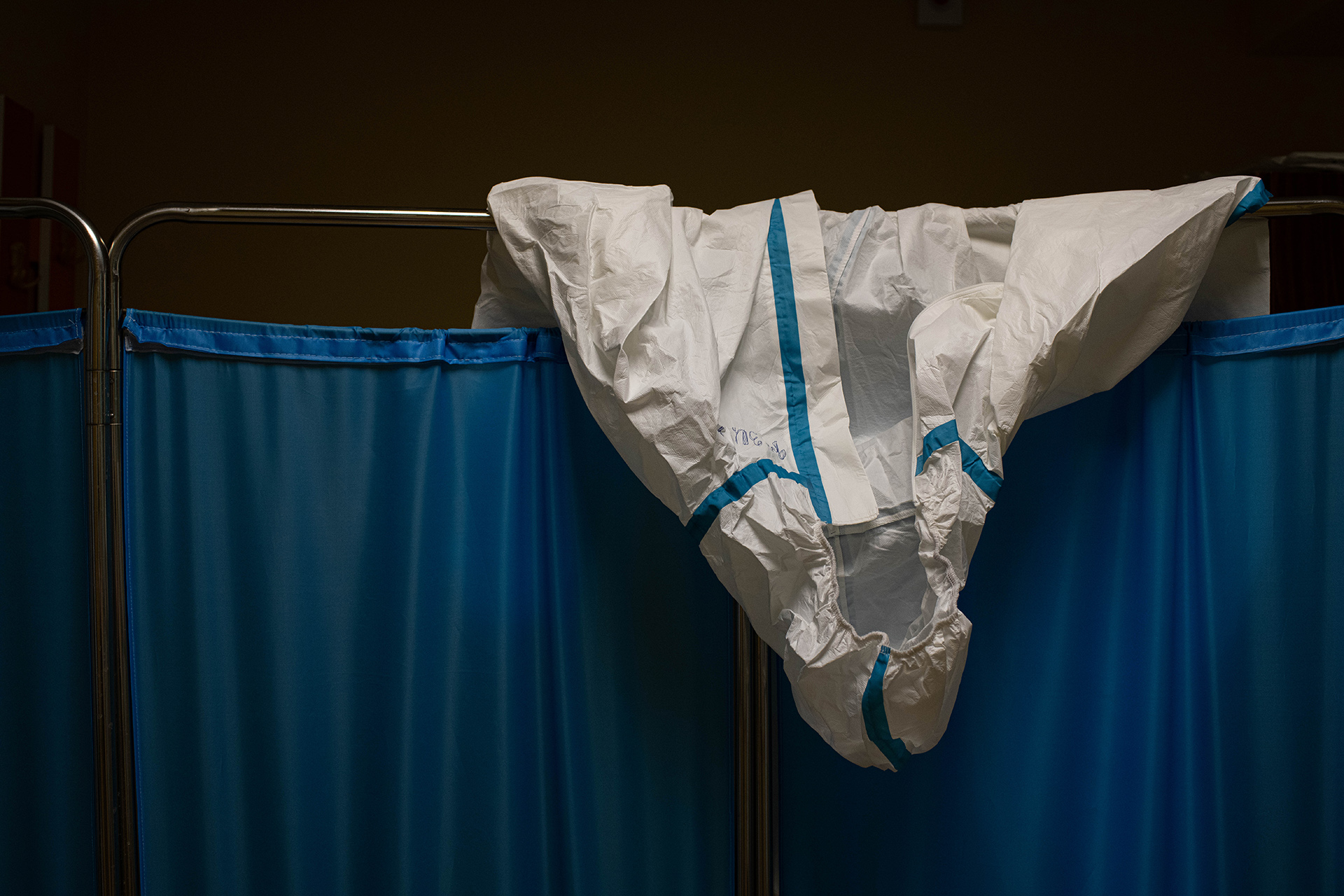
In the resuscitation department of Artashat Medical Center.
After an hour and a half, resuscitation scenes and the inability to breathe make it unbearable to stay there. I leave the department looking out the glass doors at white-clad medical personnel running through the hallways.


